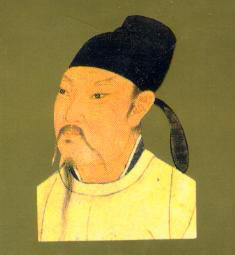| About China > History > Celebrities |
|
|
Li Bai
Practically everybody in the Chinese-speaking world knows Li Bai because his works had important and long-lasting influence on the development of Chinese poetry.
From then on his occupation became that of a wandering poet. Throughout his life he produced an lot of poems on many different subjects -- particularly nature, wine, friendship, solitude, and the passage of time. He has since become recognized by many as the greatest of the highly talented array of Tang poets. He stayed for a few years in various places, and traveled extensively. All this did not provide a satisfactory existence for his first wife, who left him with their two children. It is said that he married three times.
Li Bai entered the capital, Chang-an, in about 742 and his poetry found great favor at the imperial court. However, court plotters found a way of demonstrating that one of his poems was a malicious satire. Li Bai found it prudent to retire to the mountains again, and then wandered around China for about ten years, during which he made a close friendship with another great poet of the time Du Fu in Luoyang City, the ancient capital in today's Henan Province. Li Bai could only travel and drink to let out his anger. He had a strong imagination that was easily set off by music and wine, both of which received praise in his poetry. But even so, he never gave up ambition to become a legendary figure.
Unfortunately he got involved in a major revolt. During the Treason of Anshi, he was hired into the household of the Prince Yong. He thought that his talents were finally re-recognized. But when the household of Yong was taken down by Tang Emperor Suzong, he was imprisoned for connections with the traitors. He was sentenced to death, which was commuted to perpetual banishment to the southwest region of the empire. Later, at the age of 61, he tried to apply for a military post but failed again. From then on, he was never officially hired into the government again.
There are about 990 poems that survived to date. Among these, there were a large number of political lyrical poems that reflected the poet's extraordinary ambition, untrammeled enthusiasm and gallant spirit, and collectively reflected the spirit of the Tang poetry. Li Bai had strong self-understanding as well as fevered political enthusiasm. But all of these, when encountered with his terrible years at Chang'an and his misfortunes, had turned into an indignant outcry. Many of his poems reflect such anger.
Artistically, Li's poems were creative, ever-changing, and interweaving in form and sentence structure. All of these give Li's poems a special appeal. |
||||
 |

 His Works
His Works